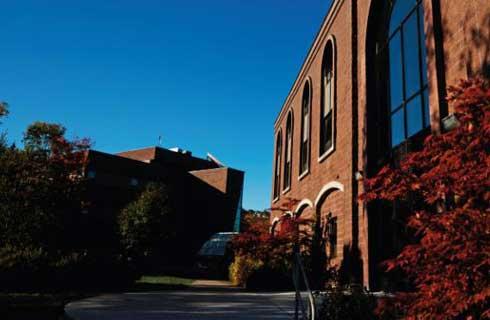Msc in Cognition and Cognitive Neuroscience

学历文凭
Masters Degree (Taught)

专业院系
School of Medicine

开学时间

课程时长

课程学费

国际学生入学条件
2:2 degree in psychology, neuroscience, or a related subject
or
demonstrated professional or relevant qualifications or experience
IELTS Academic and IELTS Indicator: 6.5 with 6.0 in all components
TOEFL IBT (including Home): 87 with 19 (writing), 19 (listening), 19 (reading) and 20 (speaking
IDP—雅思考试联合主办方

雅思考试总分
6.5
- 雅思总分:6.5
- 托福网考总分:87
- 托福笔试总分:160
- 其他语言考试:Pearson Academic 62 with 59 in each component
CRICOS代码:
申请截止日期: 请与IDP联系 以获取详细信息。
课程简介
相关申请
 预科
预科 奖学金
奖学金 实习机会
实习机会 在校学习
在校学习 跨境学习
跨境学习 校园授课-线上开始
校园授课-线上开始 在线/远程学习
在线/远程学习
开学时间&学费
学费信息仅供参考,请与IDP联系以获取详细信息
| 开学时间 | 时长 | 学费 | 地点 |
|---|
学校排名

世界排名501
数据源:
泰晤士高等教育世界大学排名
关于基尔大学

基尔大学是一所基于校园的大学,其学生课程满意度在英格兰排名并列第一(卫报2019年大学排行榜)。它位于莱姆河畔纽卡斯尔(Newcastle-under-Lyme)的大学城附近,靠近热闹的特伦特河畔斯托克市(Stoke-on-Trent),是学生的热门选择。基尔大学为拥有英国最大的单一校园而骄傲,大学拥有超过2.5平方公里的美丽乡村。基尔大学为学生提供了从基础水平到研究生研究水平的广泛课程选择,学科范围从环境科学到市场营销和媒体。大学拥有很高的就业率,在毕业后的六个月内96%的学生找到工作。基尔大学的学生来自120多个不同国家,构成了该大学的国际学生社区。这些学生努力让所有学生成为全球公民。该大学不仅是TEF金牌机构,目前还拥有200多个俱乐部和社团,大学鼓励学生参与充满活力的校园生活。这所自给自足的大学提供令人印象深刻的设施,包括一个让学生使用学习材料的24/7全天候图书馆,还有各种食品商店、健身房、舞蹈室、运动场和球场。它还为学生提供长期的笔记本电脑贷款,同时大学举办每周一次的农贸市场,并设有几家校园商店、学生会商店、邮局、银行、药房、医生诊所和书店。基尔大学为学生提供出色的残疾学生服务、毕业生服务和国际学生支持。还为所有人提供绝佳的职业建议、财务支持和保密咨询服务。有家人的学生还可以使用专门建造的托儿所。
本校相关课程

社会工作(荣誉)文学士学位
学历文凭
Bachelor Degree with Honours
开学日期
课程费用总额


理学士(荣誉)理学士
学历文凭
Bachelor Degree
开学日期
课程费用总额


MPharm(荣誉)药房
学历文凭
Bachelor Degree
开学日期
课程费用总额


MBChB(荣誉)医学
学历文凭
Bachelor Degree
开学日期
课程费用总额


理学士(荣誉)数学
学历文凭
Bachelor Degree with Honours
开学日期
课程费用总额


荣誉管理学士学位
学历文凭
Bachelor Degree with Honours
开学日期
课程费用总额

其他相关课程

生物医学学士
 皇家墨尔本理工大学
皇家墨尔本理工大学学历文凭
Bachelor Degree
开学日期
课程费用总额


哲学硕士-生物医学和生物化学
 澳大利亚国立大学
澳大利亚国立大学学历文凭
Masters Degree (Research)
开学日期
课程费用总额


生物医学学士
 詹姆斯·库克大学
詹姆斯·库克大学泰晤士高等教育世界大学排名:361
学历文凭
Bachelor Degree
开学日期
课程费用总额


理学学士(海洋生物学)
 弗林德斯大学
弗林德斯大学泰晤士高等教育世界大学排名:307
学历文凭
Bachelor Degree
开学日期
课程费用总额


理学学士-海洋生物学(荣誉学位)
 弗林德斯大学
弗林德斯大学泰晤士高等教育世界大学排名:307
学历文凭
Bachelor Degree with Honours
开学日期
课程费用总额


城市与环境规划学士/海洋生物学理学学士
 格里菲斯大学
格里菲斯大学泰晤士高等教育世界大学排名:258
学历文凭
Dual Degree
开学日期
02 March 2026
课程费用总额
AUD 167,500










 英国
英国